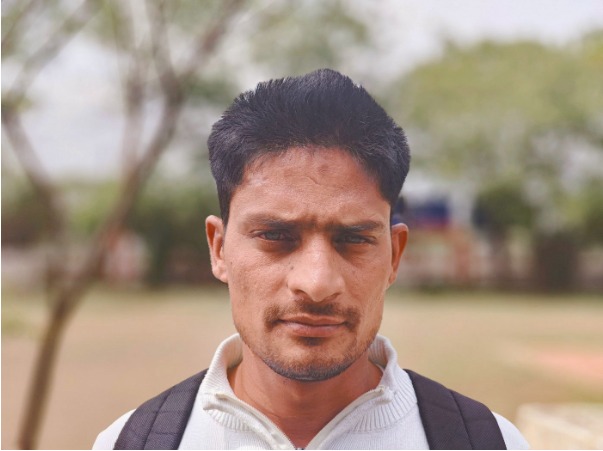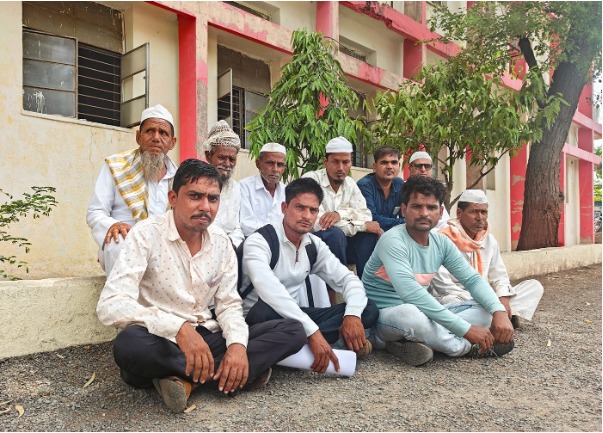– Yusra Firdaus
13 January 2024
In multiple occurrences, Muslims in rural Maharashtra have encountered unwarranted reluctance and hostility from local law enforcement when attempting to file complaints regarding attacks by right-wing fanatics. They assert that the police exhibit swift responsiveness in booking Muslims for alleged offenses, yet they must strenuously advocate and appeal for the same consideration when facing aggression and harassment.
In the rural landscapes of Maharashtra, a disturbing pattern of discrimination against Muslims has emerged, shedding light on the biased response of local authorities. In an incident that unfolded in Jalna, about 80 kilometers from Aurangabad, Ajim Sheikh, a 26-year-old man, embarked on a five-day fast in front of the Divisional Commissioner’s office in mid-June 2023. His seemingly simple demand was to file a police complaint after his family fell victim to a brutal assault by members of the local Sonawane family, who belong to the Maratha community.
The attack, which transpired on May 19, 2023, left Ajim’s family battered, with injuries sustained by his brother and parents. Not only were they physically harmed, but the assailants also looted cash and jewelry worth over Rs. 1.5 lakh from Ajim’s home. Ajim believes the assault was rooted in a business rivalry, as both families were involved in operating JCB machines, excavating silt for farmers in the nearby catchment area.

When Ajim approached the Bhokardan police station to file an FIR, he faced unwarranted resistance. The police, seemingly biased and influenced by political connections, not only refused to register the complaint promptly but also issued threats against Ajim for daring to complain against the influential Maratha family. Undeterred, Ajim persisted in his pursuit of justice, highlighting the stark imbalance in law enforcement.
Frustrated with the police’s reluctance, Ajim turned to his village’s gram panchayat, seeking support from the community. To his dismay, communal fault lines within the village became apparent, with only 20 people – all Muslims – willing to sign a letter in solidarity with Ajim. This revelation exposed the deep-seated communal divisions that had remained largely unnoticed until then.
As Ajim escalated the matter to the Divisional Commissioner, the reluctance of many Hindus to take a stand became evident. Off the record, some Hindu farmers admitted to fears of retribution, painting a picture of a volatile situation that had left them unwilling to get involved. The village sarpanch, Bhagwan Sonawane, acknowledged communal tension but downplayed it, attributing it to the specific feud between two families.
Unfortunately, this incident in Palaskheda Murtad is not an isolated case in Jalna. Communal disharmony has been on the rise, as evidenced by an attack on a religious scholar in Anwa village and the unjust arrest of a Muslim youth, Taufiq Bagwan, for posting a picture of Aurangzeb on social media.
Ajim’s struggle for justice finally saw a glimmer of hope when, after prolonged efforts, the Bhokardan police filed a diluted FIR on July 14, almost two months after the incident. The charges included unlawful assembly, rioting, causing hurt, and criminal intimidation. However, the omission of the theft of cash and jewelry highlighted the persistent bias in the system.
In the backdrop of these events, the question of equitable treatment under the law remains unanswered. Ajim’s ordeal underscores a disturbing reality where Muslims in rural Maharashtra find themselves marginalized and victimized by a system that seems to prioritize certain communities over others. As the communal fabric of Jalna continues to fray, it becomes imperative to address the deep-seated prejudices and ensure equal protection under the law for all its residents.




